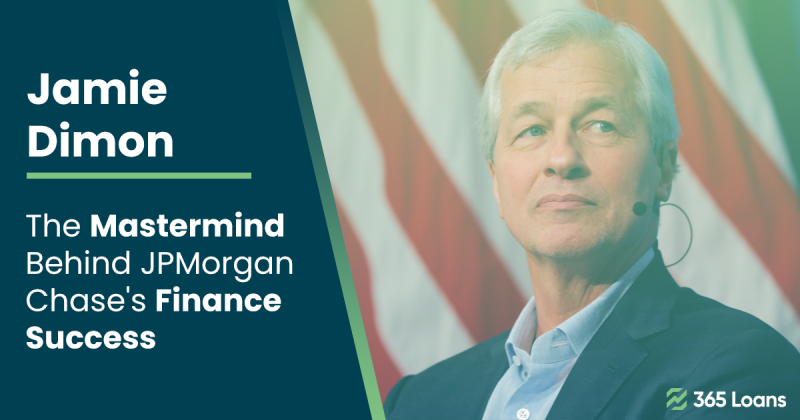Jamie Dimon is a well-known name in the finance industry, recognized for his remarkable success and influence throughout his career. He has led some of the largest financial institutions in the world and is renowned for his strategic and innovative approach to business. In this article, we will explore the key aspects of Jamie Dimon’s career in finance, from his early beginnings to his current position as the CEO of JPMorgan Chase. We will also examine his leadership style and business philosophy, as well as his personal life and philanthropic efforts.
Early Career
Jamie Dimon’s early career began with his education at Tufts University, where he earned his undergraduate degree in psychology and economics. He went on to obtain his MBA from Harvard Business School, which set him on the path to a successful career in finance.
Dimon’s first job in the industry was at American Express, where he joined the company in 1982 as an assistant to Sandy Weill, who was then the CEO of the company. Dimon quickly impressed Weill with his financial acumen, and he was promoted to the position of chief financial officer (CFO) within just three years of joining the company.
As CFO, Dimon was responsible for overseeing the company’s financial operations and played a key role in the acquisition of Shearson Lehman Hutton, which helped to position American Express as a major player in the financial services industry. However, despite his success, Dimon’s relationship with Weill eventually soured, and he left American Express in 1991.
Dimon’s early career experiences provided him with valuable insights and skills that would prove invaluable throughout his career. His time at American Express allowed him to develop his financial expertise and provided him with a solid foundation in the industry, setting the stage for his future success at some of the world’s largest financial institutions.
Success at Citigroup
After leaving American Express, Jamie Dimon joined Commercial Credit, a consumer finance company. In 1995, Commercial Credit merged with Travelers Group to form Citigroup, and Dimon was appointed as the CEO of the newly created Citigroup subsidiary, Salomon Smith Barney.
At Salomon Smith Barney, Dimon was tasked with turning around a struggling business. He quickly implemented a series of changes, including cost-cutting measures and a focus on improving customer service. His efforts paid off, and Salomon Smith Barney became one of the most profitable divisions of Citigroup.
In 1998, Dimon was appointed as the president and chief operating officer of Citigroup, making him the second-in-command at the company. He continued to implement changes, including streamlining the company’s operations and cutting costs, which led to significant improvements in the company’s financial performance.
Despite his success, tensions with Citigroup’s CEO, Sandy Weill, led to Dimon’s departure from the company in 1998. However, his time at Citigroup was instrumental in establishing him as a respected and successful leader in the finance industry, setting the stage for his future success at JPMorgan Chase.
Dimon’s success at Citigroup was largely due to his ability to identify and address problems quickly and decisively. He was not afraid to make tough decisions, including cutting jobs and reducing costs, which helped to turn around a struggling business. His approach to leadership and business management would serve him well in his future roles, including his current position as the CEO of JPMorgan Chase.
Business Philosophy
Jamie Dimon’s success in finance can also be attributed to his strong business philosophy, which emphasizes customer service, innovation, and building a strong corporate culture.
Dimon is a firm believer in the importance of putting the customer first. He believes that by focusing on the needs of customers and delivering exceptional service, businesses can build long-term relationships and ultimately drive success. This philosophy is evident in the way JPMorgan Chase operates, with a focus on providing high-quality financial services and building strong customer relationships.
Innovation is also a key aspect of Dimon’s business philosophy. He recognizes the importance of staying ahead of the curve and embracing new technologies and business models to stay competitive. JPMorgan Chase has been at the forefront of digital innovation, developing new products and services to meet the evolving needs of customers in the digital age.
Finally, Dimon places a great deal of emphasis on building a strong corporate culture. He believes that a positive work environment is essential for fostering creativity, collaboration, and innovation. Under his leadership, JPMorgan Chase has implemented a number of initiatives to promote diversity and inclusion, as well as employee engagement and development.
Personal Life and Philanthropy
Jamie Dimon’s success in finance is not the only aspect of his life worth mentioning. He is also known for his personal life and philanthropy.
Dimon is married to Judith Kent, whom he met while they were both working at Salomon Brothers. They have three daughters together and have been married since 1983. In addition to his family, Dimon is also an avid golfer and a passionate supporter of his hometown of New York City.
In terms of philanthropy, Dimon is a strong advocate for education and healthcare. He and his wife have made significant donations to various organizations, including the Harlem Children’s Zone, the New York University School of Medicine, and the University of Chicago Booth School of Business. He also serves on the board of directors of the United States Chamber of Commerce and is a member of the Business Roundtable, where he advocates for policies that promote economic growth and job creation.
In 2020, Dimon announced that he had undergone successful heart surgery, and he used the experience to emphasize the importance of healthcare access and affordability. He has also been vocal about the need for corporate responsibility and has spoken out about issues such as income inequality, climate change, and racial justice.
Overall, Jamie Dimon’s personal life and philanthropic efforts reflect his commitment to using his success to make a positive impact on society. His advocacy for education, healthcare, and corporate responsibility demonstrate that he is not only a successful businessman, but also a responsible and engaged citizen.Top of Form







